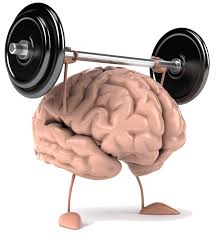 Computerized brain-training games are apparently good for something: They improve your ability to play a particular computer game. But do they make you smarter? According to a review of nearly 400 studies of brain training published last week in the journal Psychological Science in the Public Interest, there is no credible evidence that they do. The Wall Street Journal reports on the study, whose first author says the researchers found “that there’s really no compelling evidence that these sorts of interventions lead to objectively measured real-world improvements.”  The Journal reports that brain training game manufacturers, including Posit Science, Lumos Labs and Cogmed market products that make bold claims, including the ability to stave off dementia. It also reports that Lumos Labs paid $2 million earlier this year to settle a deceptive-advertising lawsuit brought by the Federal Trade Commission, which charged that the company was making false claims of protecting against age-related cognitive decline in its brain-training program Lumosity. Murali Doraiswamy, director of the neurocognitive disorders program at Duke University Health System, told the journal that,, with the exception of hand-eye coordination, which can be improved, “There’s very little evidence to support the transfer of benefits†from the exercises to daily life.
Computerized brain-training games are apparently good for something: They improve your ability to play a particular computer game. But do they make you smarter? According to a review of nearly 400 studies of brain training published last week in the journal Psychological Science in the Public Interest, there is no credible evidence that they do. The Wall Street Journal reports on the study, whose first author says the researchers found “that there’s really no compelling evidence that these sorts of interventions lead to objectively measured real-world improvements.”  The Journal reports that brain training game manufacturers, including Posit Science, Lumos Labs and Cogmed market products that make bold claims, including the ability to stave off dementia. It also reports that Lumos Labs paid $2 million earlier this year to settle a deceptive-advertising lawsuit brought by the Federal Trade Commission, which charged that the company was making false claims of protecting against age-related cognitive decline in its brain-training program Lumosity. Murali Doraiswamy, director of the neurocognitive disorders program at Duke University Health System, told the journal that,, with the exception of hand-eye coordination, which can be improved, “There’s very little evidence to support the transfer of benefits†from the exercises to daily life.
